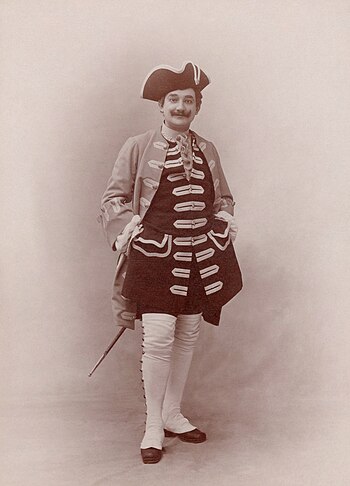Wikipedia:Main Page history/2023 August 4b
From today's featured article
Coccinellidae is a family of small beetles called ladybugs in North America and ladybirds elsewhere. More than 6,000 species occur globally in a variety of habitats. They are oval with a domed back. Adult females are larger than males. Many species have warning colours and patterns that warn predators that they are distasteful. Most are carnivorous, preying on insects such as aphids. They are promiscuous breeders, and may lay their eggs near prey colonies, so their larvae have a close food source. They develop from larva to pupa to adult. Temperate species hibernate during the winter; tropical species are dormant during the dry season. Since they prey on pests, most coccinellids are beneficial insects and some have been introduced outside their range as biological control agents. A few are pests themselves, and invasive forms pose a threat to native species. Threats to coccinellids include climate change and habitat destruction. They feature in folklore, religion, poetry, and nursery rhymes. (Full article...)
Did you know ...
- ... that Chicago journalist Jamie Kalven (pictured) has amassed a database of nearly 250,000 allegations against police officers?
- ... that the active galaxy 3C 120 was given the variable-star designation BW Tauri because of its variability in the visible spectrum?
- ... that in 1912, Emily Dorothea Pavy became the first recipient of the Catherine Helen Spence Scholarship?
- ... that a British supermarket uses barriers to prevent shoppers grabbing food with yellow discount stickers out of the hands of staff?
- ... that New Zealand footballer Milly Clegg was called "an absolute unicorn" after appearing at three FIFA World Cups in under twelve months?
- ... that unlike other German radio magazines of its era, N.S.-Funk was published in several regional editions?
- ... that George Thomas Taylor was one of Canada's earliest nature photographers?
- ... that the only notable quality in Igor Stravinsky's "Tarantella", according to Richard Taruskin, is "how little talent it displays"?
In the news
- In cricket, the Ashes concludes with Australia retaining the trophy, drawing the series against England (Compton–Miller Medal recipient Chris Woakes pictured).
- In cycling, Demi Vollering wins the Tour de France Femmes.
- IS–KP kill more than 50 people in a suicide bombing at a political rally in Khar, Pakistan.
- Typhoon Doksuri kills 76 people across the Philippines, Taiwan, and China.
On this day
- 1356 – Hundred Years' War: A large-scale mounted raid by Anglo-Gascon forces began under the command of Edward the Black Prince.
- 1783 – Mount Asama (pictured) in Japan began a climactic eruption, which exacerbated the Great Tenmei famine and led to thousands of deaths.
- 1892 – Lizzie Borden's father and stepmother were found murdered in their home in Fall River, Massachusetts; Borden was later tried and acquitted for the murders.
- 1972 – President Idi Amin announced the expulsion of Asians from Uganda.
- 1983 – Jean-Baptiste Ouédraogo, the president of Upper Volta, was ousted in a coup d'état led by Thomas Sankara.
- Lady Zhen (d. 221)
- Percy Bysshe Shelley (b. 1792)
- Osbert Lancaster (b. 1908)
- Margarito Bautista (d. 1961)
From today's featured list
Today's featured picture

|
Jacques Isnardon (1860–1930) was a French bass-baritone, writer and voice teacher. After winning a competition at the Conservatoire de Paris, he made his debut as Baxter in Émile Paladilhe's Diane at the Opéra-Comique in 1885, before moving to Brussels and the Théâtre Royal de la Monnaie, whose history he chronicled. He sang in Die Meistersinger at Covent Garden, Manon at La Scala, and Le médecin malgré lui at Monte Carlo before returning to the Opéra-Comique in 1894. One of his students was the American actress, writer, and translator Virginia Fox Brooks. This photograph of Isnardon was taken by French photographer Nadar in the late 19th century. Photograph credit: Nadar; restored by Adam Cuerden
Recently featured:
|
Other areas of Wikipedia
- Community portal – The central hub for editors, with resources, links, tasks, and announcements.
- Village pump – Forum for discussions about Wikipedia itself, including policies and technical issues.
- Site news – Sources of news about Wikipedia and the broader Wikimedia movement.
- Teahouse – Ask basic questions about using or editing Wikipedia.
- Help desk – Ask questions about using or editing Wikipedia.
- Reference desk – Ask research questions about encyclopedic topics.
- Content portals – A unique way to navigate the encyclopedia.
Wikipedia's sister projects
Wikipedia is written by volunteer editors and hosted by the Wikimedia Foundation, a non-profit organization that also hosts a range of other volunteer projects:
-
Commons
Free media repository -
MediaWiki
Wiki software development -
Meta-Wiki
Wikimedia project coordination -
Wikibooks
Free textbooks and manuals -
Wikidata
Free knowledge base -
Wikinews
Free-content news -
Wikiquote
Collection of quotations -
Wikisource
Free-content library -
Wikispecies
Directory of species -
Wikiversity
Free learning tools -
Wikivoyage
Free travel guide -
Wiktionary
Dictionary and thesaurus
Wikipedia languages
This Wikipedia is written in English. Many other Wikipedias are available; some of the largest are listed below.
-
1,000,000+ articles
-
250,000+ articles
-
50,000+ articles




